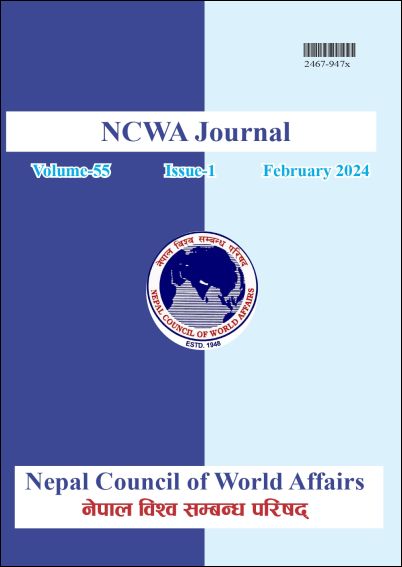Artificial Intelligence: Opportunities and Challenges for the Global South with a Focus on Nepal
DOI:
https://doi.org/10.3126/ncwaj.v55i01.62979Keywords:
national security, Artificial intelligence, information and communication technology, Global South, NepalAbstract
Artificial intelligence is a relatively new and contemporary technological tool that also figures significantly in the current discourse of international relations. AI stems from its ability to mimic human cognitive functions, allowing machines to perform tasks that previously required human intelligence. AI systems can analyze massive amounts of data, identify patterns, and make data-driven decisions by utilizing advanced algorithms, machine learning, and data processing capabilities. The primary goal is to improve efficiency, accuracy, and automation across multiple domains, including healthcare, finance, manufacturing, and transportation. Furthermore, AI has the potential to address complex challenges, innovate solutions, and contribute to scientific advancements, making it an effective tool for supplementing human capabilities and driving progress in a variety of fields. However, ethical considerations and responsible development are essential for ensuring the responsible and beneficial integration of AI into society. Concerns regarding AI have also been expressed from the viewpoint of foreign policy, national security, data privacy, and the possible replacement of humans by machines. This is expected to pose additional difficulties for developing nations like Nepal as it may be very expensive to use AI in various development endeavors that aim to address global issues on an equal footing with developed nations. Because most of the countries in the Global South are developing or least developed, AI may therefore present more challenges than opportunities to them.
Hence, this article attempts to incorporate the various dimensions of AI in terms of the different perspectives that are encountered in this changing context of the AI world, as well as the real impacts that may be opportunities or threats to Nepal from the perspective of international relations and diplomacy.




